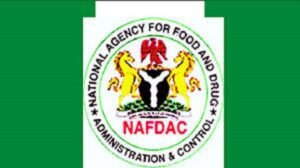Credit: Leadership N/P
Kano: In recent years, the fight against counterfeit drugs has taken on new urgency in Kano, a state grappling
with significant public health challenges. LONGTONG YAKUBU explores the transformative efforts aimed at revamping Kano’s drug market, highlighting the positive changes that are not only improving safety and access to medications but also saving lives.
I
n recent years, the Kano
drug market has undergone
a significant transformation,
addressing the critical issue
of substandard and falsified
(SF) medicines.
The prevalence of
counterfeit drugs has long been a
public health concern, endangering
millions of lives and contributing
to tragic fatalities. According to
the World Health Organization
(WHO), counterfeit drugs are those
deliberately mislabeled regarding
their identity or source, often
produced below standard quality
or sold as substitutes for legitimate
medications.
For years, Kano state was
notorious for its chaotic market
conditions, where fake and
counterfeit drugs flourished.
Investigations uncovered rampant
smuggling and the sale of narcotics
and banned products, placing
the state among the top regions
for drug abuse.
However, recent efforts by stakeholders to regulate and clean up the drug market are
yielding positive outcomes. This
article explores the steps taken to
transform the Kano drug landscape
and the impact on public health and
safety.
In 2013, the state government,
in collaboration with the National
Agency for Food and Drug
Administration and Control
(NAFDAC), took significant
steps to combat counterfeit drugs
by destroying fake medicines
worth N600 million that had been
impounded from various outlets.

Fast forward to 2024, NAFDAC
arraigned three suspects before
the Federal High Court in Kano
for manufacturing, distributing,
and selling falsified medicines,
including Asian Ampicillin 125mg
+ Cloxacillin 125mg/5ml powder
for oral suspension for children,
which contained zero active
ingredients.
The World Health Organisation
(WHO) estimates that over 280,000
children die annually in sub
Saharan Africa due to substandard
medicines used to treat pneumonia
and malaria.
A study by the UN Office on Drugs and Crime reveals that up to 500,000 people die each year from counterfeit drugs in the
region. The same report indicates
that there are approximately
267,000 deaths annually from
substandard malaria drugs and
around 169,000 deaths each year
from fake antibiotics used to treat
pneumonia in children.
To address these pressing issues
and sanitize the drug distribution
system in Nigeria, the Presidential
Committee on Pharmaceutical
Sector Reform (PCPSR) was
established in 2003. Among its
initiatives was the creation of
Coordinated Wholesale Centres
oversight. Given its status as a
commercial hub supplying drugs
to northern states and neighboring
countries, Kano was selected as a
pilot location for the CWC, which
was commissioned by the federal
government.
Transitioning drug sellers to the
new CWC proved challenging,
leading to tensions between
stakeholders, including NAFDAC
and the Pharmaceutical Council
of Nigeria (PCN). Their refusal to
relocate prompted these agencies
to warn manufacturers, importers,
and distributors to cease supplying
pharmaceuticals, medical devices,
and other regulated products to any
open market facilities, particularly
in Niger Street, Sabon Gari Market,
or elsewhere outside the CWC at
Dangwauro.
The Kano CWC, named Kanawa
Coordinated Warehouse Centre,
is a multibillionnaira facility
developed under a publicprivate
partnership (PPP) arrangement.
With many traders now relocating
to this site, positive testimonials
have emerged regarding the
enhanced drug distribution system
and legitimate supply chain,
contributing to a reduction in the
prevalence of substandard and
falsified (SF) medicines.
Kano state NAFDAC
coordinator, Mr. Kasim Ibrahim,
noted in an interview with
LEADERSHIP Weekend that
within less than a year of the CWC’s
operation, they have significantly
curtailed the chaotic distribution of
counterfeit and substandard drugs.
He reported that from March to the
present, NAFDAC has identified at
least 35 products that were either
completely fake or unregistered in
the market.
“We recently paraded a
suspect supplying more than nine
completely fake products that had
NAFDAC numbers. Laboratory
analysis revealed these products
contained zero active ingredients.
The coordinated warehouse
has enabled us to confirm and
achieve much in this fight against
substandard medicines,” he stated.
Mr. Ibrahim praised the initiative,
emphasizing that the CWC’s
restricted environment allows all
regulatory agencies to effectively
monitor the flow of goods in and
out of the market, enhancing overall
safety and accountability.
The director of Kanawa
Pharmaceutical Partners Ltd at
the Coordinated Wholesale Centre
(CWC), Alhaji Dahiru Matazu,
explained that the state has long
struggled with the issue of fake
drugs. He noted that when the
federal government introduced the
initiative for a coordinated market,
legitimate businesses welcomed it
wholeheartedly.
Matazu emphasised that
they conduct regular random
sampling of both new and existing
pharmaceutical products to ensure
compliance with standards, which
serves as a deterrent for those
considering illegal trade.
When asked about the prevalence
of fake drugs in the open market
compared to the coordinated
market, he stated that it has
drastically reduced by 80 percent.
He highlighted the presence of
an experienced task force that
monitors all activities in the center,
both covertly and overtly.
“Kano used to be at the forefront
of the fake drug issue. When the
federal government introduced this
initiative, we embraced it to support
our legitimate business,” he said.
“This has yielded great success; in
our office, we have a large cache of
seized fake ciprofloxacin tablets.”
He added that they have received
approval to build a laboratory
for the center, but for now, they
have signed a memorandum of
understanding with a federal
governmentapproved lab in
Kaduna. Any drugs that do not
meet quality standards are sent for
examination.
Matazu cited a recent case
involving a company, Asia
Pharmaceutical, which brought
goods that, after lab examination,
were found to be a suspension made
with ordinary flour and containing
zero active ingredients. Despite having a Lagos address, these
products were actually produced in
Niger State. He also mentioned that
another tablet was discovered to
have only seven (7) percent of the
active ingredients it was supposed
to contain, while a smuggled cough
syrup from Sokoto was also seized.
“If not for the coordination, it
would have been difficult to trace
these drugs, and we know their
consumption poses serious health
risks,” he stated.
Regarding controlled substances,
Matazu noted that they are no
longer sold indiscriminately but
under the supervision of qualified
experts, such as pharmacists,
except in urgent cases where
prescriptions are provided. This
has significantly helped reduce drug
abuse, especially among youth,
who now have less access to these
substances.
Expressing gratitude for the
booming business at the center,
he mentioned that customers now
come from as far as Chad, the
Central African Republic, Niger,
Ghana, Cameroon, and other
neighboring countries to purchase
drugs due to the guarantees offered
in a coordinated environment.
Matazu urged fellow traders
to remain committed to their
legitimate businesses and to avoid
buying or selling any form of
substandard or falsified medicines,
emphasizing that engaging in such
practices can lead to prolonged
illness, waste of resources, and a
breach of trust between patients
and healthcare providers.
(CWC) to improve regulatory tactics.











